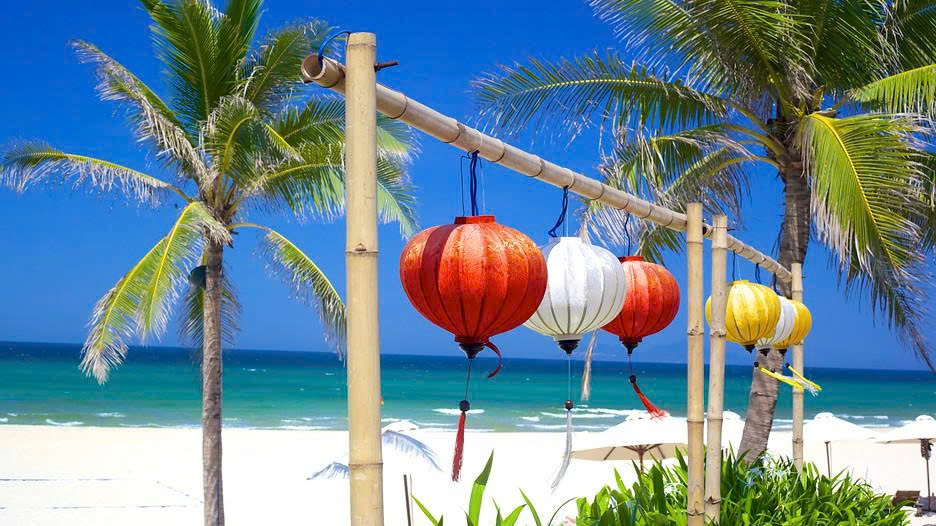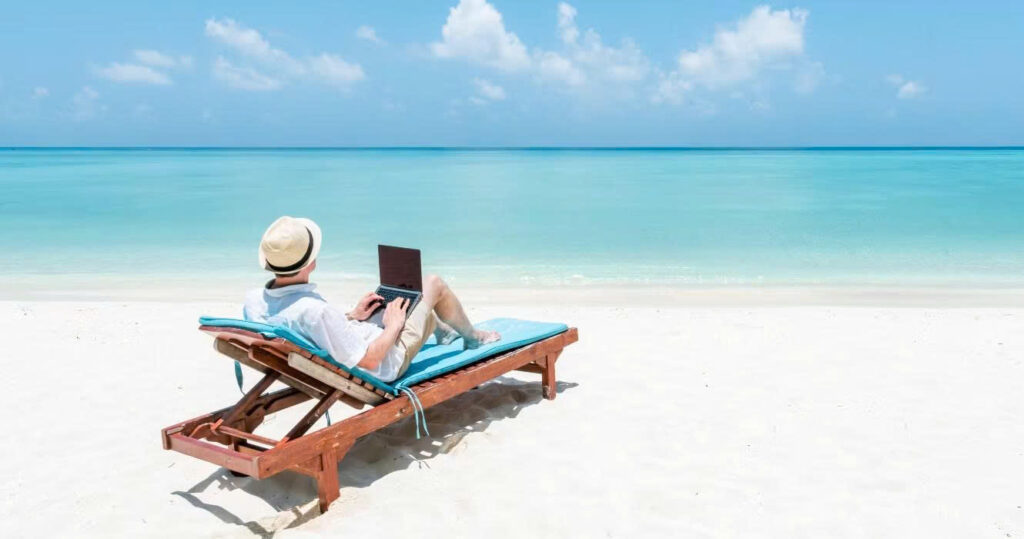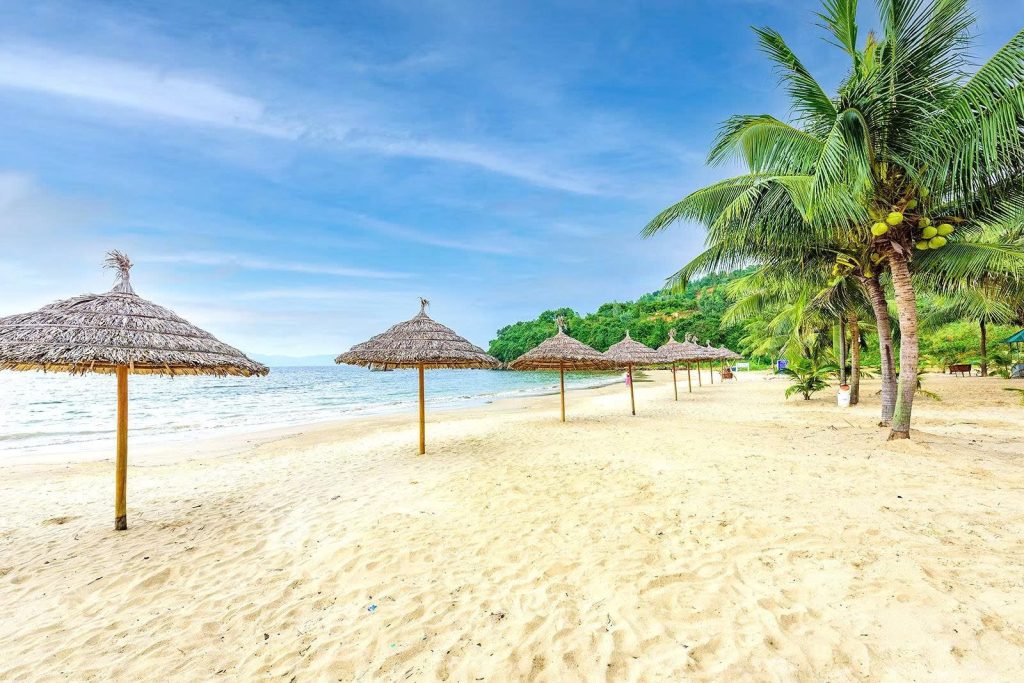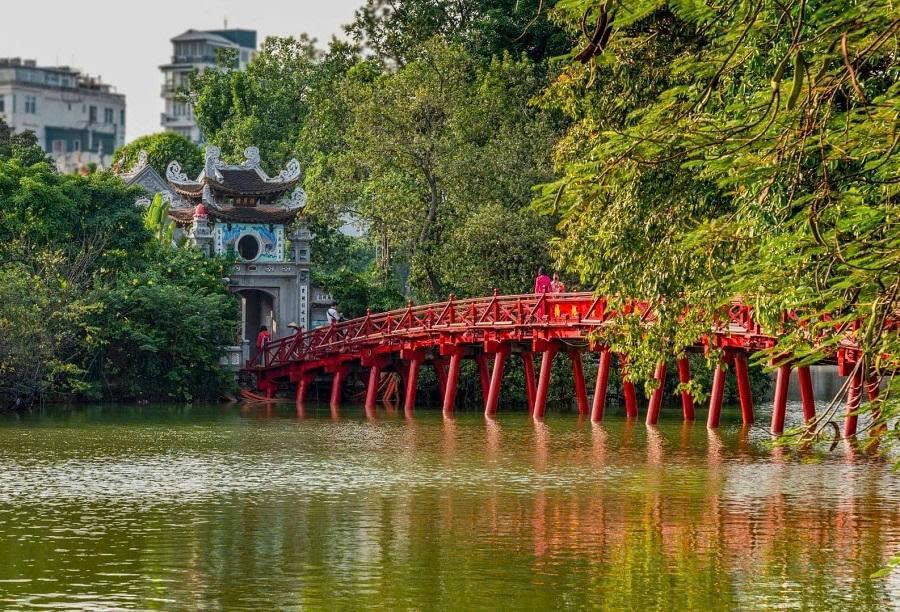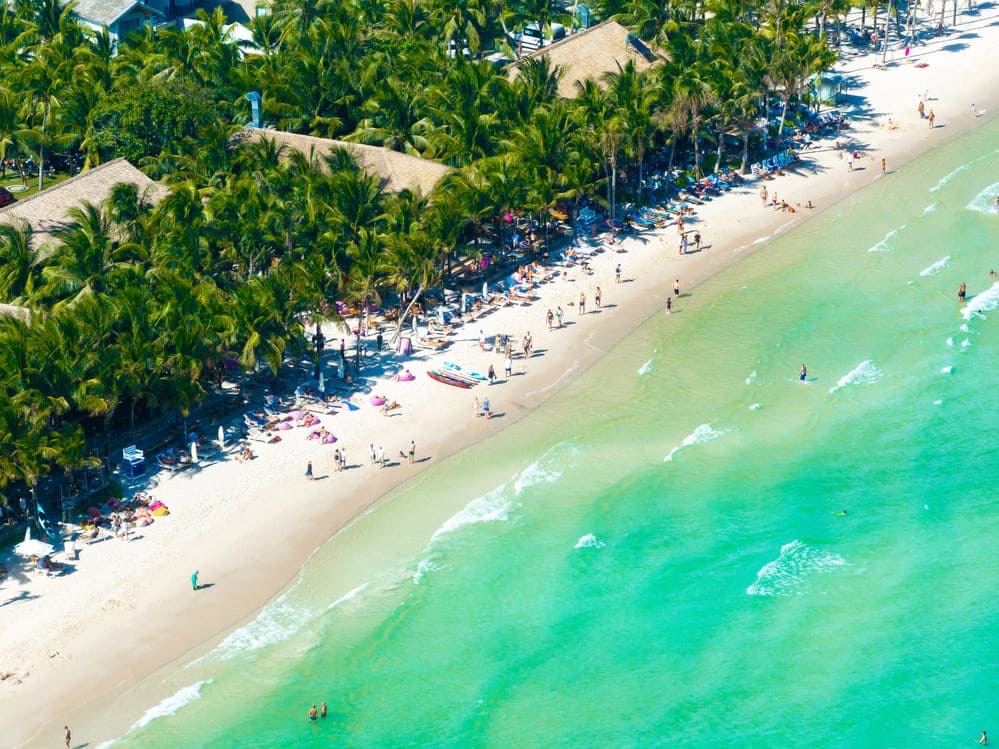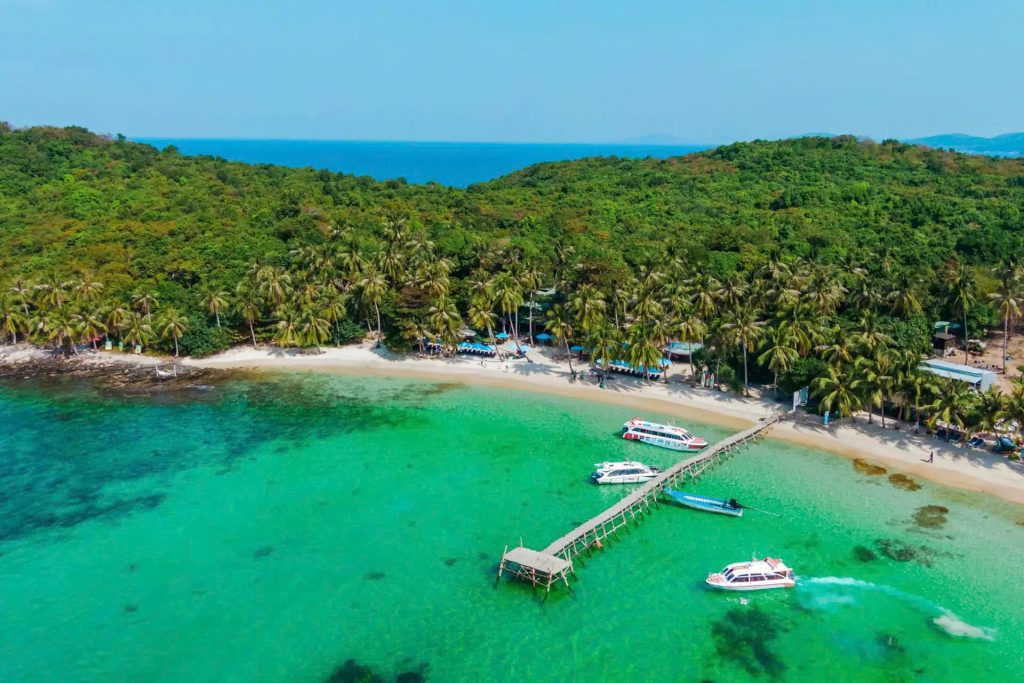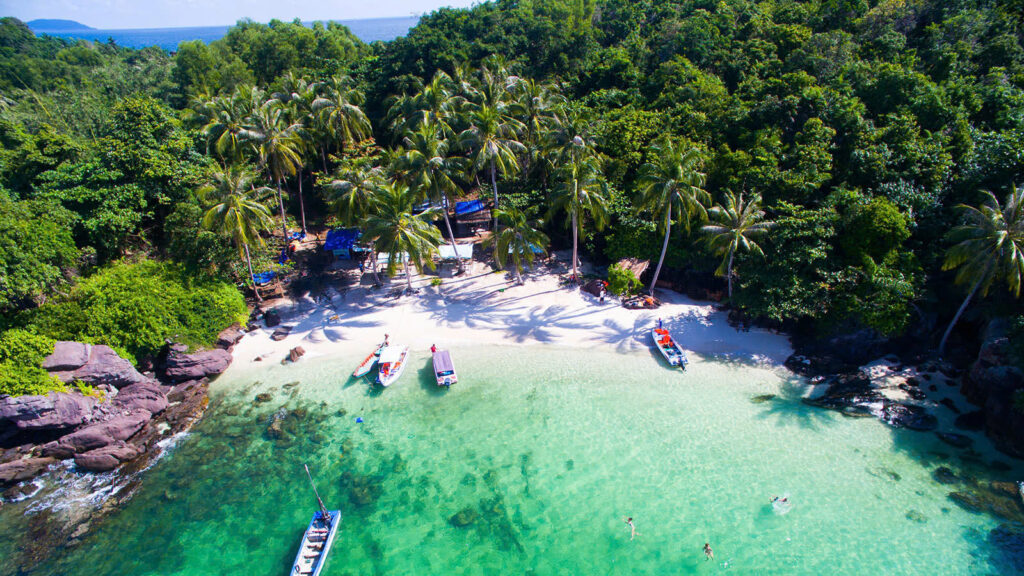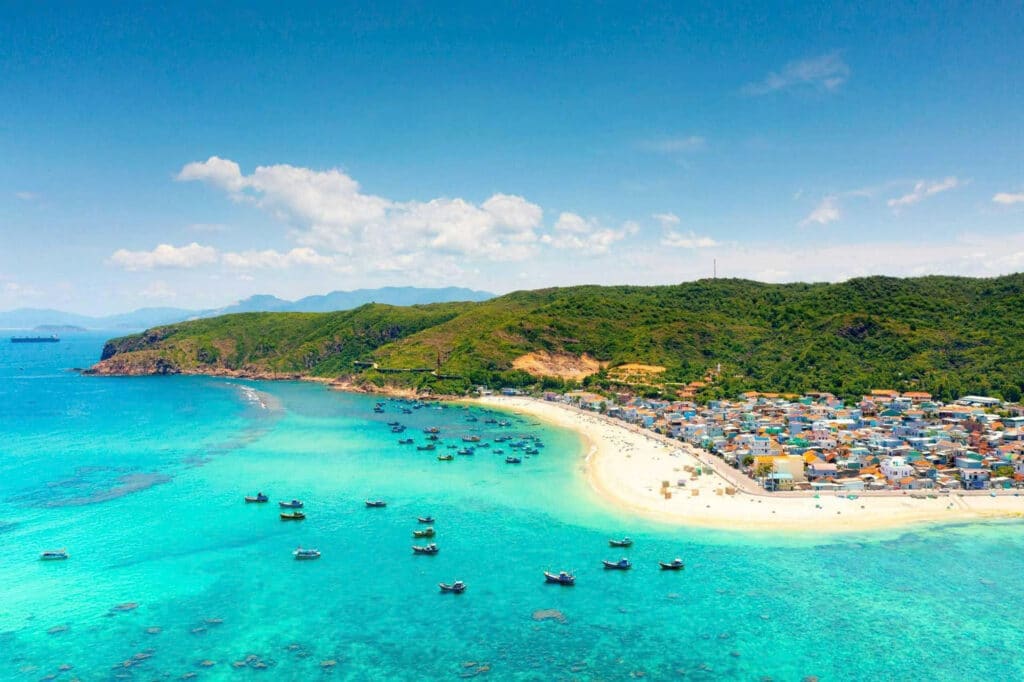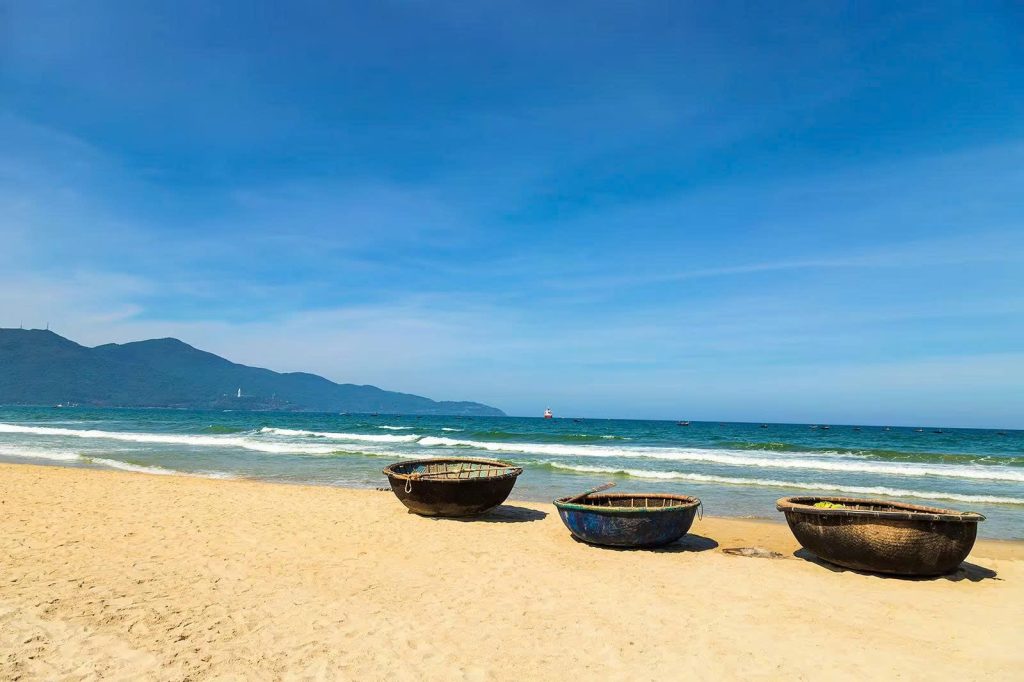Vietnam has rapidly emerged as a prime destination for digital nomads, offering a captivating blend of vibrant culture, delicious cuisine, low cost of living, and an increasingly robust infrastructure. However, moving to any new country comes with its unique set of challenges. To help you navigate your journey and thrive, here are the top digital nomad tips for living in Vietnam smoothly.
1. Before You Arrive: Essential Preparations
Laying the groundwork before you even land can save you a lot of hassle and set you up for success.
1.1. Visa Requirements & Extensions
Understanding Vietnamese visa policies is paramount. This is often the first and most critical hurdle for any long-term stay.
1.1.1. Types of Visas for Long Stays (e.g., Business, Tourist Visas & Extensions)
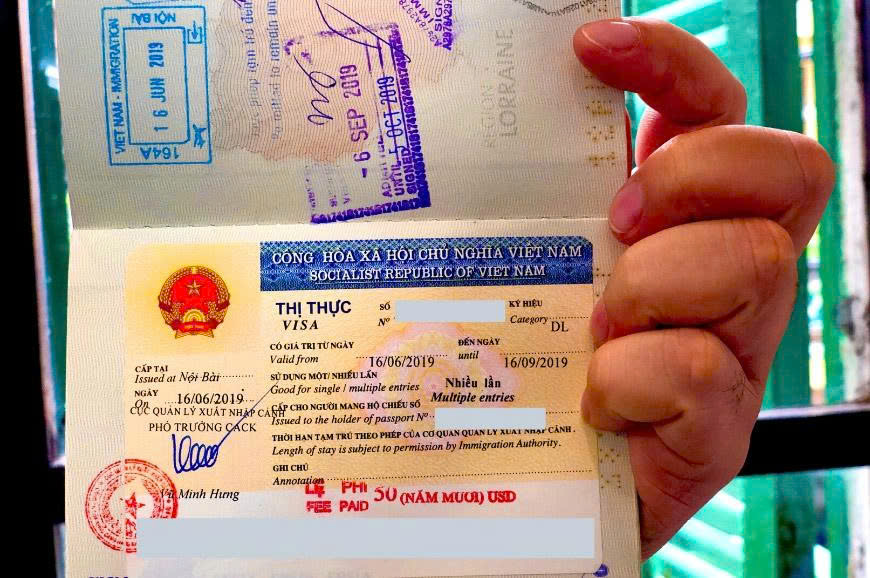
Currently, Vietnam does not offer a specific “digital nomad visa.” Most digital nomads enter on a tourist visa (e-visa or visa on arrival), which typically allows for a 30-day or 90-day single or multiple entry. For longer stays, many opt for visa extensions or visa runs (exiting and re-entering the country).
- E-visa: Convenient and applied online, often valid for 30 days, single entry.
- Tourist Visa (via Embassy/Consulate or Visa on Arrival with Approval Letter): Can be 30 or 90 days, single or multiple entry.
- Business Visa (DN visa): Requires a sponsoring company in Vietnam and is more complex to obtain, but allows for longer, more stable stays. It’s crucial to consult with a reputable visa agent well in advance.
1.1.2. Navigating the Application Process & Common Pitfalls
Always check the latest regulations on the official Vietnam Immigration Department website or consult a reliable visa agency. Be wary of unofficial sources. Make sure your passport remains valid for a minimum of six months from your arrival and has enough empty pages. Overstaying your visa can lead to significant fines and future entry bans.
RELATED: Vietnam Digital Nomad Visa: Guide to Remote Work Residency
1.2. Health Insurance & Vaccinations
Prioritize your well-being, particularly when in an unfamiliar setting.
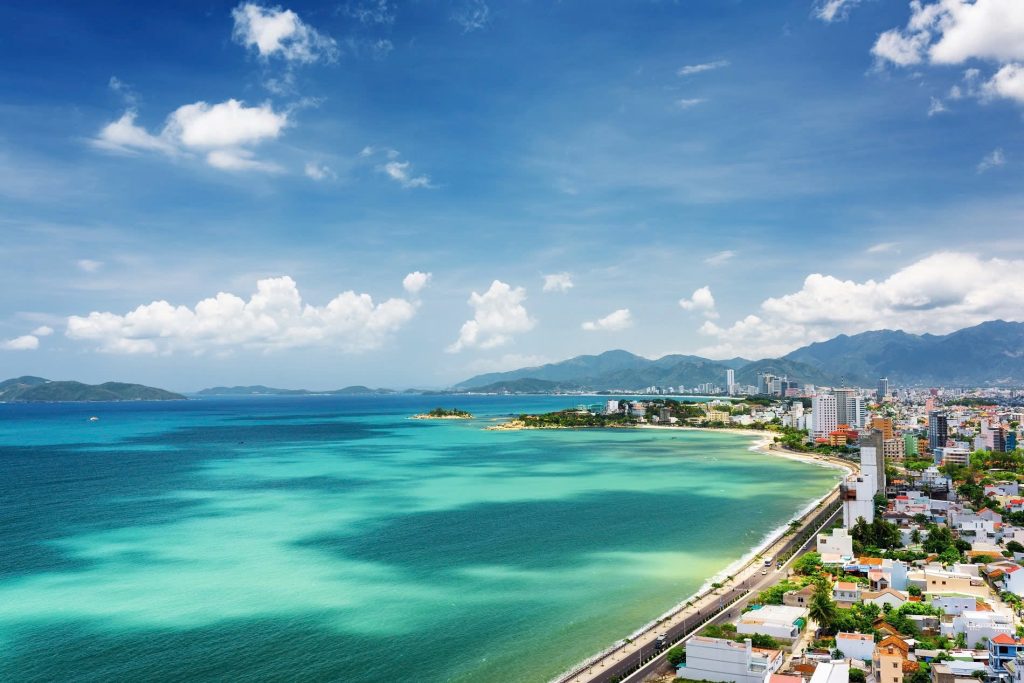
1.2.1. Recommended Travel & Health Insurance Providers for Nomads
Don’t skip travel and health insurance. Providers like SafetyWing, World Nomads, or Cigna Global are popular choices among digital nomads as they offer coverage for international travel and remote work. Ensure your policy covers medical emergencies, hospital stays, and ideally, repatriation.
1.2.2. Essential Vaccinations & Local Health Considerations
Consult your doctor about recommended vaccinations for Vietnam, which often include Hepatitis A & B, Typhoid, Tetanus, and Rabies. Be mindful of mosquito-borne diseases like Dengue Fever, especially during the rainy season (May to November in the south, drier in the north). Always drink bottled water.
1.3. Financial Planning & Budgeting
Vietnam is generally affordable, but knowing your expected expenses is key.
1.3.1. Estimating Monthly Living Costs (Rent, Food, Transport)

A comfortable budget for a solo digital nomad in Vietnam can range from $800 – $1,500 USD per month, depending heavily on your lifestyle and choice of city.
- Rent: $300 – $800+ for a studio or 1-bedroom apartment.
- Food: $150 – $400 (street food is very cheap, Western restaurants add up).
- Transport: $50 – $150 (motorbike rental or Grab/Gojek).
1.3.2. Best Ways to Manage Money (ATMs, Wise, Local Banks)
- Wise (formerly TransferWise): Excellent for international transfers and holding multiple currencies.
- ATMs: Widely available, but be aware of withdrawal limits (often 2-3 million VND) and fees (around 30,000-50,000 VND per transaction). Look for banks like Agribank, Vietcombank, or TPBank for potentially higher limits.
- Cash: Still king, especially for street food and smaller vendors. Always carry small denominations.
1.4. Packing Essentials for Vietnam’s Climate & Culture
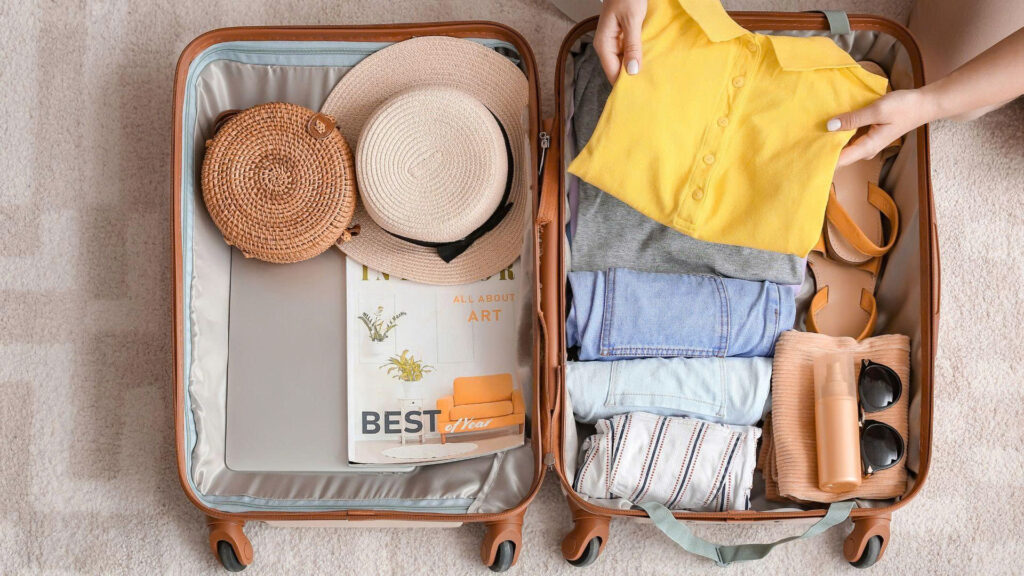
Pack light, breathable clothing (cotton, linen) due to the tropical climate. A good rain jacket is essential during the wet season. Comfortable walking shoes and sandals are a must. Don’t forget a universal travel adapter, power bank, and a basic first-aid kit.
2. Settling In: Finding Your Home Away From Home
Once you arrive, securing a comfortable living situation and staying connected are your immediate priorities.
2.1. Choosing Your Base: Best Cities for Digital Nomads
Vietnam offers diverse options, each with its own charm.
2.1.1. Ho Chi Minh City: The Bustling Hub
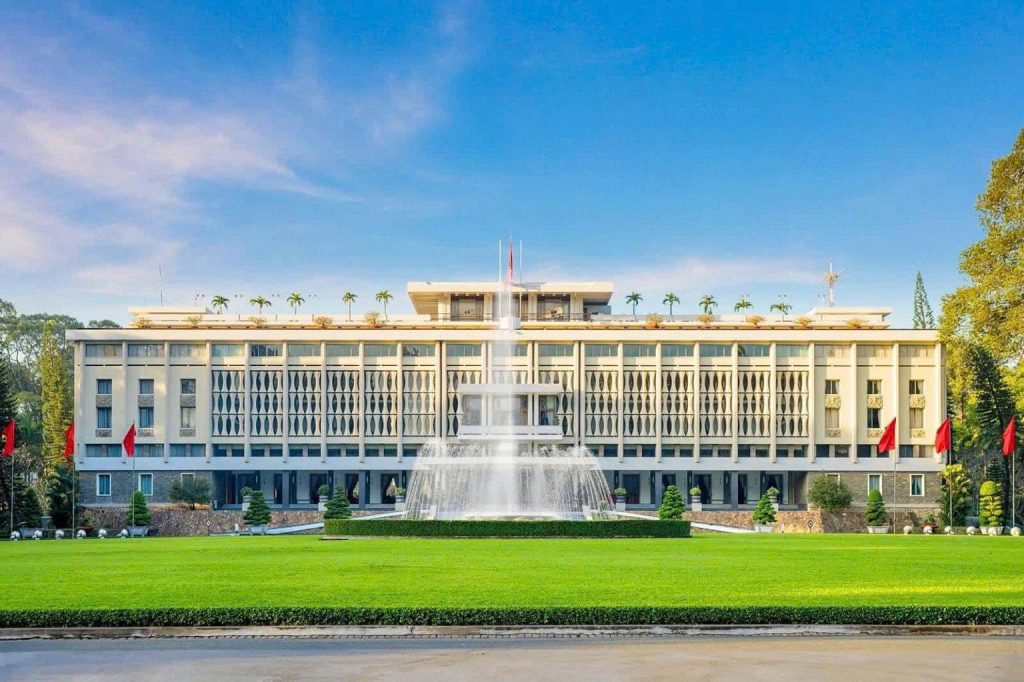
Ho Chi Minh City (HCMC), particularly District 1 and District 2 (Thao Dien), is the most popular choice. It’s vibrant, with endless dining options, a large expat community, and numerous coworking spaces. Thao Dien is especially favored by many expatriates and digital nomads for its greener streets, international amenities, and slightly slower pace than the city center.
2.1.2. Hanoi: The Cultural Capital
Hanoi offers a more traditional Vietnamese experience with charming old quarters, lakes, and a rich history. It’s ideal for those seeking a deeper cultural immersion and a slightly cooler climate in winter.
2.1.3. Da Nang & Hoi An: Coastal Charm & Relaxed Vibes
For beach lovers and a more laid-back lifestyle, Da Nang offers modern infrastructure and beautiful beaches, while nearby Hoi An provides historical charm and a slower pace.
2.1.4. Other Emerging Destinations (e.g., Phu Quoc, Nha Trang)
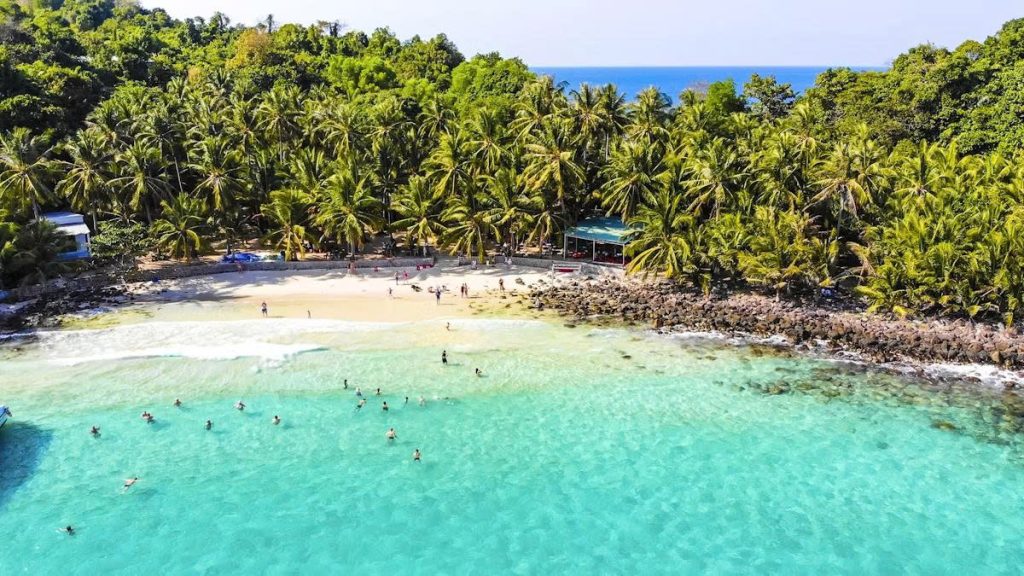
Smaller cities like Phu Quoc (island life) or Nha Trang (beach city) are gaining popularity for their relaxed atmosphere, though infrastructure might be less developed for long-term remote work.
2.2. Finding Long-Term Accommodation
Securing a comfortable base is crucial for productivity and well-being.
2.2.1. Popular Websites & Facebook Groups for Rentals
- Facebook Groups: In HCMC, “Rentals Saigon,” “Apartments for Rent in Ho Chi Minh City,” and specific Thao Dien groups are goldmines. In Hanoi, search for “Hanoi Apartments” or “Hanoi Expats.”
- Websites: PropertyGuru, Expat.com, and local real estate agencies’ sites.
- Word of Mouth: Often, the best deals come from connecting with other expats.
2.2.2. Types of Accommodation (Serviced Apartments, Local Houses, Condos)
- Serviced Apartments: Fully furnished, include cleaning, security, and sometimes utilities. Convenient but often pricier.
- Local Houses/Apartments: Can be more affordable, but may require furnishing and dealing with utility bills separately.
- Condos (Condominiums): Often in modern buildings with amenities like pools and gyms. Popular in HCMC and Da Nang.
2.2.3. Negotiation Tips & What to Look for in a Contract

Always negotiate the price, especially for longer leases (6+ months). Check for essentials: strong Wi-Fi, air conditioning, hot water, and noise levels. Read the contract thoroughly and ensure all terms (deposit, notice period, utilities) are clear. Consider using an agency for your first rental to ensure legal protection.
2.3. Internet & Connectivity
Reliable internet is non-negotiable for digital nomads.
2.3.1. Best Local SIM Cards & Mobile Data Plans
Purchase a local SIM card upon arrival. Providers like Viettel, Mobifone, and Vinaphone offer affordable data packages. Viettel generally has the best coverage, especially outside major cities. You can often get unlimited data plans for under $10 USD per month.
2.3.2. Reliable Internet Providers for Your Home Setup
Home internet is generally fast and affordable. Providers include VNPT, FPT Telecom, and Viettel. Speeds of 50-100 Mbps are common and reliable in major urban areas.
RELATED: Digital Nomads Cost of Living in Vietnam: Monthly Budget Guide
3. Working Effectively: Productivity & Infrastructure
Vietnam’s remote work infrastructure is continually improving.
3.1. Coworking Spaces & Cafes with Good Wi-Fi
3.1.1. Top Coworking Spaces in Major Cities

- Ho Chi Minh City: Toong, Dreamplex, UPGEN, Saigon CoWorking are well-known.
- Hanoi: Toong, The Vuon, ReWorking offer professional environments.
- Da Nang: Enouvo Space, CoPlus are popular choices.
3.1.2. Cafe Culture & Remote Work Friendly Spots
Vietnam’s vibrant cafe culture means you’ll find countless cafes with good Wi-Fi, perfect for a change of scenery. Just be mindful of peak hours.
3.2. Managing Time Zones & Client Communication
If your clients are in Western time zones, be prepared for early mornings or late nights. Tools like Doodle or Calendly can help schedule meetings efficiently. Clear communication about your working hours is vital.
3.3. Essential Apps & Tools for Remote Work in Vietnam
Beyond your usual work tools, consider apps like Google Translate, Xanh SM/ Grab (for transport and food delivery), Zalo (local messaging app), and Wise for banking.
4. Daily Life & Culture: Embracing Vietnam
Immersing yourself in the local culture will enrich your experience significantly.
4.1. Navigating Local Cuisine & Food Safety
Vietnamese food is world-renowned and incredibly diverse.
4.1.1. Must-Try Dishes & Street Food Etiquette

Don’t miss Phở, Bún chả, Bánh mì, and Cà phê sữa đá. Embrace street food – it’s delicious and authentic. When eating street food, look for stalls with a high turnover of customers, indicating freshness.
4.1.2. Tips for Staying Healthy While Eating Out
Stick to cooked food, avoid ice in drinks (unless from a reputable place), and wash your hands frequently. Most stomach issues are minor and pass quickly.
4.2. Transportation & Getting Around
4.2.1. Motorbike Rentals & Safety Tips
Renting a motorbike is popular but comes with risks. Traffic can be chaotic. Always wear a helmet, drive defensively, and have appropriate travel insurance that covers motorbike accidents. An International Driving Permit is legally required.
4.2.2. Ride-Hailing Apps (Grab, Gojek) & Taxis
Grab and Gojek (formerly Go-Viet) are indispensable for affordable and convenient transport (motorbikes and cars) and food delivery. Traditional taxis (Mai Linh, Vinasun) are also reliable.
4.2.3. Public Transport Options
Major cities have public buses, which are very cheap but can be slow. HCMC is developing a metro system.
4.3. Cultural Immersion & Etiquette
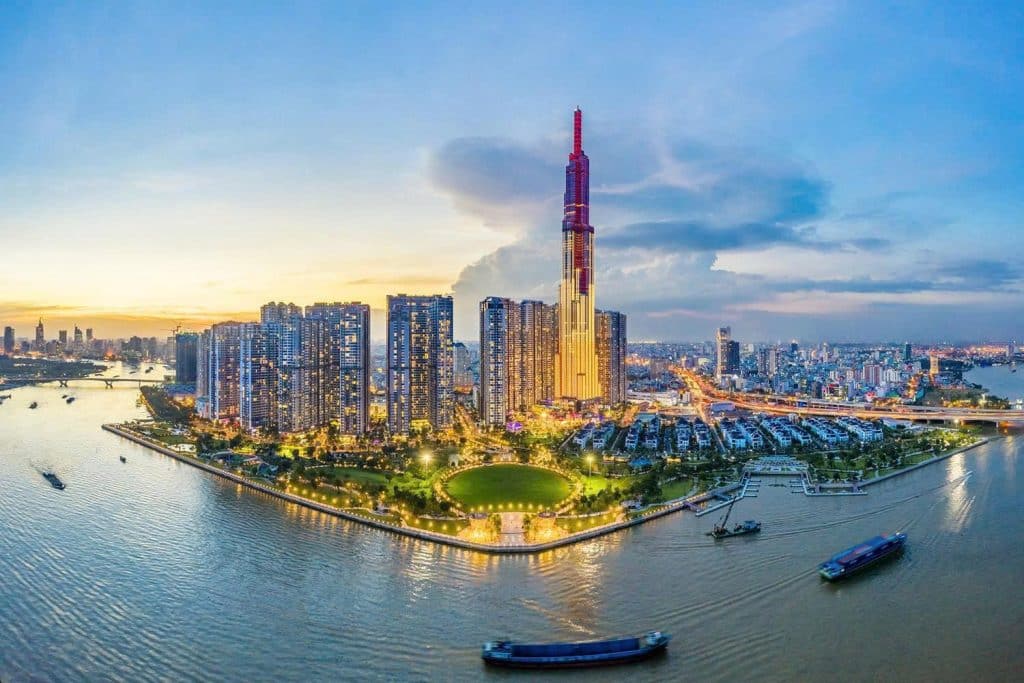
4.3.1. Basic Vietnamese Phrases & Greetings
Learning a few basic phrases like “Xin chào” (hello), “Cảm ơn” (thank you), and numbers will go a long way. Locals appreciate the effort.
4.3.2. Understanding Local Customs & Social Norms
Dress modestly when visiting pagodas or temples. Remove your shoes before entering someone’s home. Always use both hands when exchanging items. Courtesy and reverence for older individuals are deeply appreciated.
4.3.3. Bridging the Language Barrier
While many young people and those in tourist areas speak English, don’t expect it everywhere. Use translation apps when necessary.
4.4. Building a Community & Networking
Loneliness can be a challenge. Actively seek out communities.
4.4.1. Expat & Digital Nomad Facebook Groups

These groups are excellent for asking questions, finding events, and connecting with others. Search for “Digital Nomads Vietnam,” “Expats in [City Name],” etc.
4.4.2. Meetups & Social Events
Check platforms like Meetup.com for events related to your interests or professional field. Many coworking spaces also host networking events.
4.4.3. Local Activities & Hobbies
Join a local sports club, take a cooking class, or volunteer. This is a great way to meet both locals and other expats.
5. Staying Safe & Healthy in Vietnam
While generally safe, awareness is key.
5.1. Common Scams & How to Avoid Them
Be aware of petty theft (phone snatching), overcharging by street vendors/taxis (use Grab/Gojek to avoid), and “friendly” touts. Always be polite but firm if you’re not interested.
5.2. Personal Safety & Security Tips

Keep your valuables secure, especially in crowded areas. Don’t walk by yourself in unknown areas after dark. Trust your gut feeling.
5.3. Accessing Healthcare & Pharmacies
5.3.1. Reputable Hospitals & Clinics for Expats
In HCMC, consider FV Hospital or Raffles Medical. In Hanoi, Vinmec International Hospital or Family Medical Practice. These facilities cater to international patients.
5.3.2. Understanding Local Medical Practices
For minor ailments, pharmacies are widespread and can often provide basic medications without a prescription. For anything more serious, seek a reputable clinic.
5.4. Dealing with Climate & Environmental Factors
Stay hydrated in the heat and humidity. Be mindful of air quality, especially in big cities during certain months. Consider wearing a mask if pollution is high.
6. Legal & Administrative Considerations
While less common for short-term nomads, it’s good to be aware.
6.1. Understanding Local Laws & Regulations

Familiarize yourself with basic Vietnamese laws, especially regarding drug use (very strict penalties) and public behavior. Ignorance of the law is not an excuse.
6.2. Potential Tax Implications for Digital Nomads
Most digital nomads operating under a tourist visa are generally not subject to Vietnamese income tax if their income is earned entirely outside of Vietnam and they do not exceed specific residency requirements (usually 183 days in a calendar year). However, it’s always best to consult with a tax professional specializing in international taxation for personalized advice.
6.3. Opening a Local Bank Account (If Applicable)
Opening a local bank account can be challenging without a long-term business visa or work permit. Many nomads rely on international debit cards and services like Wise.
RELATED: Digital Nomad in Vietnam: Best Cities, Costs & Tips
Vietnam offers an unparalleled experience for digital nomads: a vibrant culture, delicious food, affordable living, and a welcoming community. By preparing thoroughly, understanding local nuances, and actively engaging with the environment, you can ensure your digital nomad journey in Vietnam is not just productive, but truly unforgettable. So pack your bags, prepare for an adventure, and get ready to live and work smoothly in this incredible Southeast Asian gem!


